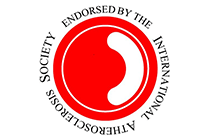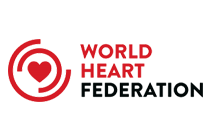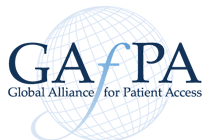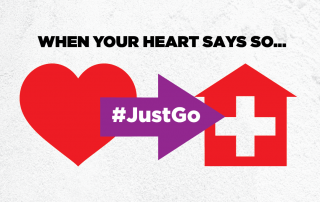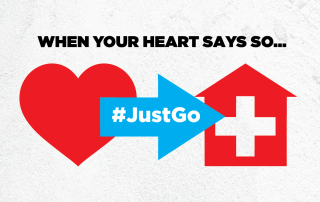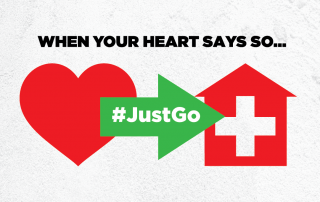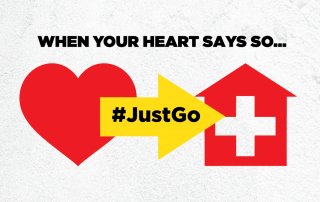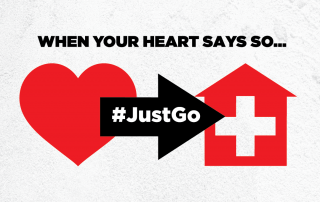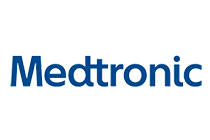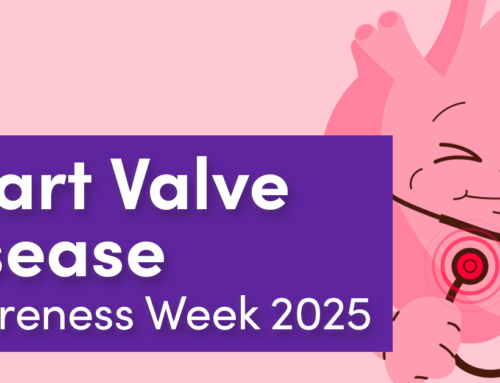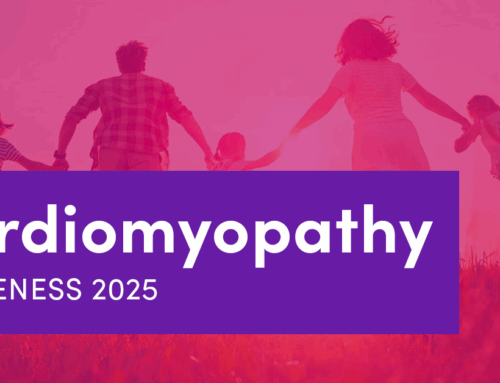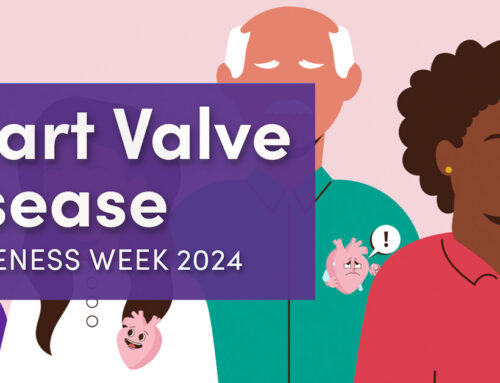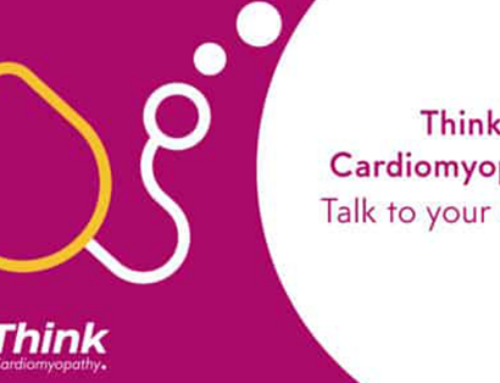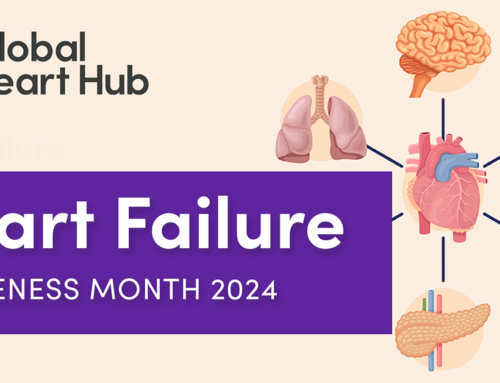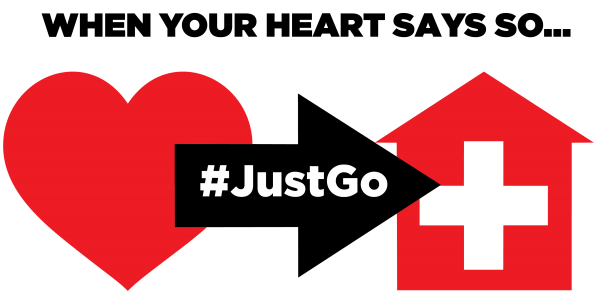
About this campaign
The #JustGo campaign is an international collaboration between heart patient organisations aimed at saving lives and reducing disability by encouraging those with symptoms of heart or stroke emergency to seek medical help without delay.
The campaign is an initiative of the Global Heart Hub in partnership with FH Europe, a European patient network whose mission includes the prevention of early cardiovascular disease with a particular focus on familial hypercholesterolaemia (FH) and related conditions. Both organisations have joined forces on this patient-to-patient communications campaign to highlight the importance of seeking medical help for cardiac and stroke emergency during the COVID-19 crisis.
National Clinical Societies and international organisations such as the World Heart Federation, World Stroke Organisation and the European Society of Cardiology are all united on the important message that ignoring cardiac symptoms or delaying treatment carries the risk of severe complications with long-term negative and potentially life threatening consequences.
Join the campaign
We encourage affiliates of the Global Heart Hub and heart patient organisations worldwide to share the #JustGo message. Download the toolkit now to get started.
Videos and Animations
Information and Text
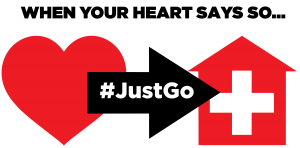
#JUSTGO – Social Media Graphics
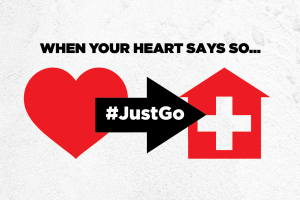
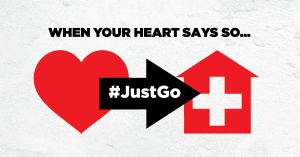
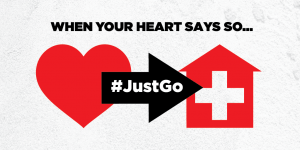
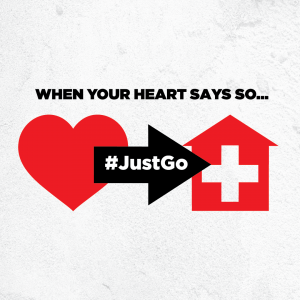
Localised Translations
.zip files contain hi-res campaign graphics and colour variations for the social media channels.
Click to download:
AR | BR | CZ | DE | ES | FR | IT | LT | LV | NL | PL | PT | SL
Why is this campaign so important?
One of the unintended consequences of the COVID-19 messaging to ‘Stay at Home’ is that it has resulted in very high levels of fear around visiting a doctor or going to hospital. A recent survey on the impact of COVID-19 by the Global Heart Hub across 19 countries reported that the biggest fear of heart patients is contracting the virus and their second biggest fear is visiting their doctor or going to hospital.
In recent weeks, many people with heart and stroke emergencies have delayed seeking medical help or decided to just ‘sit it out’ and stay at home because of their fear of COVID-19.
This delay in taking action has resulted in worse outcomes, ranging from unnecessary loss of life to people being left with disability, chronic heart conditions and poorer quality of life.
Doctors are reporting that those who delay in seeking medical help are in a far worse condition when they finally arrive at hospital and they are often too late to benefit from the life-saving treatments that are normally available to them.
#JustGo!
Medical advice has always been to act quickly when it comes to symptoms of a heart attack or stroke. “Time is muscle” – the longer you wait with a heart attack, the more damage occurs to your heart muscle. The same applies in the case of stroke.
The message is simple and clear – If you are experiencing the symptoms of a heart attack or stroke, -Don’t delay – Every minute counts. If you have chest pain or other heart attack symptoms – such as pain in the throat, neck, back, stomach or shoulders that lasts for more than 15 minutes – you must call an ambulance.
Equally, if you are living with a heart condition and if you are experiencing new symptoms or a worsening of symptoms contact your doctor or go to a hospital as soon as possible.
Be assured that the risk of coronavirus infection in hospital has been minimised for those being admitted with heart attacks or strokes. Remember that the risk of dying from an untreated heart attack is 10 times higher than dying from COVID-19.
If you are experiencing a heart or stroke emergency – this is NOT the time to ‘stay at home’ – If your heart says so, #JustGo.
Share the signs and symptoms and when to #JustGo:
HEART ATTACK
Typical symptoms of a heart attack include:
- Chest pain, tightness, or discomfort that comes on with physical exertion or emotional distress and that is relieved by rest. Sometimes this exertional or emotional chest discomfort can spread to the left arm or jaw area. If a heart attack is severe, these symptoms can persist when you are resting. You may feel dizzy (light headed), nauseous sweaty or short of breath. These symptoms may not be as obvious if you are female or have diabetes.


STROKE
Typical symptoms of a stroke include:
- Sudden loss of speech, vision, ability to walk, or power in your hands or legs.
- No warning signs – sudden loss of ability to do something you normally can do
- Sudden weakness of the face, arms, or legs
- Droop on one side of your face
- Sudden confusion or trouble speaking or understanding others
- Sudden loss of vision in half the visual field
- Sudden trouble walking, dizziness, or loss of balance or coordination
- Sudden severe headache with no known cause
HEART FAILURE
Typical symptoms of heart failure include:
- Shortness of breath with exertion that is out of keeping with your normal fitness, usually associated with swelling in the feet and ankles or abdominal bloating and reduced appetite, due to fluid retention. Shortness of breath while lying down in bed that is relieved by sitting up and weight gain over a short period of time (>2kg over 2 days) are also symptoms.


HEART VALVE DISEASE
Typical symptoms of heart valve disease, especially in those over the age of 65 years of age, include:
- Shortness of breath or dizziness with exertion that is out of keeping with your normal fitness, can also be accompanied by symptoms of heart attack or heart failure (as described above).
FAMILIAL HYPERCHOLESTEROLEMIA (FH)
- All of the above symptoms in a person younger than 55 who has a diagnosis of FH, has a family member diagnosed with FH or has multiple other family members with a history of heart disease or stroke.






